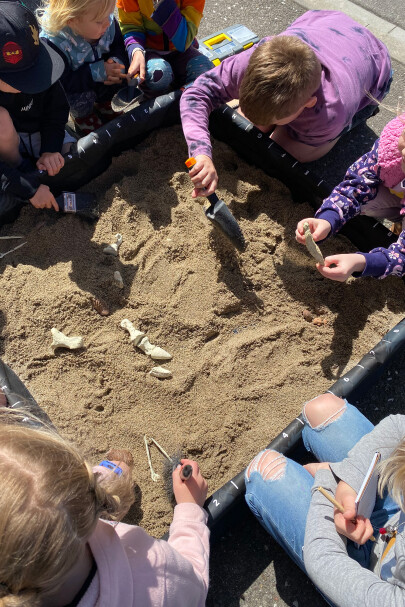Also acting as agents of change, schools and their teachers play an important role in building foundational skills that will support pro-environmental activity throughout life. Helping schools build such skills, or supporting them where they exist, will help improve pro-environmental attitudes in the future.

Engaging future environmentalists starts early in life.
Schools may have the potential to make more profound changes to how people manage the land, but it will take longer to see them. This research looks at how those with a mandate to protect the environment can better understand and support less obvious agents of change.in schools. In some cases the desire to take a ‘balanced’ view appears to lead to weighting all sides as equal and substitutable when this may not be the case, and may lead to inadvertently justifying damaging actions.
Schools whose mission or values align with pro-environmental action find it easier to nurture pro- environmental attitudes and action in their students. To amplify positive environmental change, schools, such as the Climate Action Campus, could be encouraged or supported to succeed (e.g. funded) and to work with mainstream state schools, creating room in the curriculum for what is currently seen as extra-curricular activity.
Younger students will take time to progress into the workforce, so the impact of school initiatives is long- term, although their potential impact is high. Other interventions (outside schools) with more immediate effects are also needed to achieve pro- environmental impacts on land.
Three schools were studied, each with strong and distinct relationships with the land: Hauraki Plains College, a state high school situated in an agricultural area, with many students from farming backgrounds; Climate Action Campus, a satellite school that students visit a few hours per week to spend time outdoors, building confidence to
take tangible actions in the face of climate change; and Pūhoro Science, Technology, Engineering, Maths, and Mātauranga (STEMM) Academy, a virtual high school/academy that seeks to enable and inspire rangatahi Māori to pursue STEMM careers.
Several unifying themes emerged from the research:
- The more supportive a school’s wider community is of pro-environmental attitudes and action, the more likely such attitudes and skills will be developed in the school.
- Critical thinking is an important foundational skill and nurtured in schools. In some cases the desire to take a ‘balanced’ view appears to lead to weighting all sides as equal and substitutable when this may not be the case, and may lead to inadvertently justifying damaging actions.
- Schools whose mission or values align with pro-environmental action find it easier to nurture pro-environmental attitudes and action in their students. To amplify positive environmental change, schools, such as the Climate Action Campus, could be encouraged or supported to succeed (e.g. funded) and to work with mainstream state schools, creating room in the curriculum for what is currently seen as extracurricular activity.
- Younger students will take time to progress into the workforce, so the impact of school initiatives is long-term, although their potential impact is high. Other interventions (outside schools) with more immediate effects are also needed to achieve pro-environmental impacts on land.

